As the United States struggles with urban congestion, environmental concerns, and the need for sustainable transportation solutions, e-bikes have emerged as a promising alternative to traditional gasoline-powered vehicles. These electric-powered bicycles offer a clean, efficient, and convenient mode of transportation, aligning with the nation’s goals to reduce emissions and promote healthier lifestyles. To accelerate the adoption of e-bikes, numerous states and cities across the country are rolling out e-bike incentive programs. This article explores the significance of these programs, their benefits, and their growing prevalence throughout the USA.
The Ascendance of E-bikes:
E-bikes have become a key component of modern transportation, providing users with an efficient and environmentally friendly means of travel. Equipped with electric motors, e-bikes offer a boost of power that helps tackling hills and longer distances more manageable. With urban areas facing escalating traffic congestion and heightened environmental concerns, e-bikes represent a compelling solution to mitigate these challenges.
E-bike Incentive Programs in the USA:
Recognizing the transformative potential of e-bikes, numerous cities and states within the United States are spearheading e-bike incentive programs. These initiatives span a variety of approaches, including financial incentives, infrastructure enhancements, and public awareness campaigns.
Financial Incentives: Many local governments are offering financial incentives to encourage e-bike adoption. For instance, in New York City, the “e-Mobility Equity Program” provides discounts to low-income residents for the purchase of e-bikes. This program seeks to ensure that the benefits of e-bikes are accessible to a broad socioeconomic spectrum. In California, the Clean Vehicle Rebate Project offers rebates to consumers purchasing eligible e-bikes, making sustainable transportation options more affordable. According to Streetsblog USA, there are more than 70 existing, ended or upcoming e-bike purchase incentive programs in the U.S. and Canada, covering different types of incentives such as cash back, discounts, tax credits and more. These programs aim to promote the popularity of e-bikes, reduce traffic congestion and emissions, improve public health and social equity.
Infrastructure Development: E-bike incentive programs often dovetail with infrastructure development efforts. San Francisco, California, has directed resources toward creating bike lanes dedicated to e-bikes and charging stations, creating a safer and more supportive environment for e-bike riders. Similarly, in Austin, Texas, the city’s plan for smart mobility includes the expansion of bike lanes and bike-sharing programs to accommodate the growing e-bike trend.
Public Outreach: E-bike incentive programs are also driving public awareness campaigns. Washington, D.C.'s “E-bike for All” initiative seeks to inform residents about the benefits of e-bikes, including their potential to reduce emissions and alleviate traffic congestion. Programs like “Bike Month” in cities like Chicago, Illinois2, combine education, events, and incentives to encourage residents to try e-bike commuting.
Benefits of E-bike Incentive Programs:
Mitigating Traffic Congestion: E-bikes can play a pivotal role in alleviating traffic congestion. By promoting e-bike adoption through incentives, cities like Los Angeles, California3, hope to decrease the number of single-occupancy vehicles on the road during peak hours. Reduced congestion leads to smoother traffic flow, shorter travel times, and a more efficient transportation network.
Emission Reduction: E-bikes contribute to improved air quality due to their lack of tailpipe emissions. With e-bike incentives gaining traction, cities like Portland, Oregon, envision a future with fewer emissions-related health issues and a cleaner environment. Reduced air pollution has wide-ranging benefits for public health and the quality of urban life.
Enhancing Public Health: E-bike incentive programs align with efforts to promote healthier lifestyles. Minneapolis, Minnesota, aims to encourage more residents to cycle by providing rebates for e-bike purchases, fostering physical activity and reducing sedentary behaviors. As more people switch to e-bikes for their daily commute or leisure activities, they can enjoy the benefits of improved cardiovascular health, lower stress levels, and higher self-esteem.
Conclusion:
E-bikes are transforming the way people travel in urban areas. By offering various incentives for e-bike adoption, cities and states across the USA are supporting this shift toward a more sustainable and healthy mode of transportation. E-bike incentive programs have significant benefits for traffic congestion, emission reduction, and public health. As these programs continue to expand and evolve, they will likely play a key role in shaping the future of urban mobility.
The Ascendance of E-bikes:
E-bikes have become a key component of modern transportation, providing users with an efficient and environmentally friendly means of travel. Equipped with electric motors, e-bikes offer a boost of power that helps tackling hills and longer distances more manageable. With urban areas facing escalating traffic congestion and heightened environmental concerns, e-bikes represent a compelling solution to mitigate these challenges.
E-bike Incentive Programs in the USA:
Recognizing the transformative potential of e-bikes, numerous cities and states within the United States are spearheading e-bike incentive programs. These initiatives span a variety of approaches, including financial incentives, infrastructure enhancements, and public awareness campaigns.
Financial Incentives: Many local governments are offering financial incentives to encourage e-bike adoption. For instance, in New York City, the “e-Mobility Equity Program” provides discounts to low-income residents for the purchase of e-bikes. This program seeks to ensure that the benefits of e-bikes are accessible to a broad socioeconomic spectrum. In California, the Clean Vehicle Rebate Project offers rebates to consumers purchasing eligible e-bikes, making sustainable transportation options more affordable. According to Streetsblog USA, there are more than 70 existing, ended or upcoming e-bike purchase incentive programs in the U.S. and Canada, covering different types of incentives such as cash back, discounts, tax credits and more. These programs aim to promote the popularity of e-bikes, reduce traffic congestion and emissions, improve public health and social equity.
Infrastructure Development: E-bike incentive programs often dovetail with infrastructure development efforts. San Francisco, California, has directed resources toward creating bike lanes dedicated to e-bikes and charging stations, creating a safer and more supportive environment for e-bike riders. Similarly, in Austin, Texas, the city’s plan for smart mobility includes the expansion of bike lanes and bike-sharing programs to accommodate the growing e-bike trend.
Public Outreach: E-bike incentive programs are also driving public awareness campaigns. Washington, D.C.'s “E-bike for All” initiative seeks to inform residents about the benefits of e-bikes, including their potential to reduce emissions and alleviate traffic congestion. Programs like “Bike Month” in cities like Chicago, Illinois2, combine education, events, and incentives to encourage residents to try e-bike commuting.
Benefits of E-bike Incentive Programs:
Mitigating Traffic Congestion: E-bikes can play a pivotal role in alleviating traffic congestion. By promoting e-bike adoption through incentives, cities like Los Angeles, California3, hope to decrease the number of single-occupancy vehicles on the road during peak hours. Reduced congestion leads to smoother traffic flow, shorter travel times, and a more efficient transportation network.
Emission Reduction: E-bikes contribute to improved air quality due to their lack of tailpipe emissions. With e-bike incentives gaining traction, cities like Portland, Oregon, envision a future with fewer emissions-related health issues and a cleaner environment. Reduced air pollution has wide-ranging benefits for public health and the quality of urban life.
Enhancing Public Health: E-bike incentive programs align with efforts to promote healthier lifestyles. Minneapolis, Minnesota, aims to encourage more residents to cycle by providing rebates for e-bike purchases, fostering physical activity and reducing sedentary behaviors. As more people switch to e-bikes for their daily commute or leisure activities, they can enjoy the benefits of improved cardiovascular health, lower stress levels, and higher self-esteem.
Conclusion:
E-bikes are transforming the way people travel in urban areas. By offering various incentives for e-bike adoption, cities and states across the USA are supporting this shift toward a more sustainable and healthy mode of transportation. E-bike incentive programs have significant benefits for traffic congestion, emission reduction, and public health. As these programs continue to expand and evolve, they will likely play a key role in shaping the future of urban mobility.

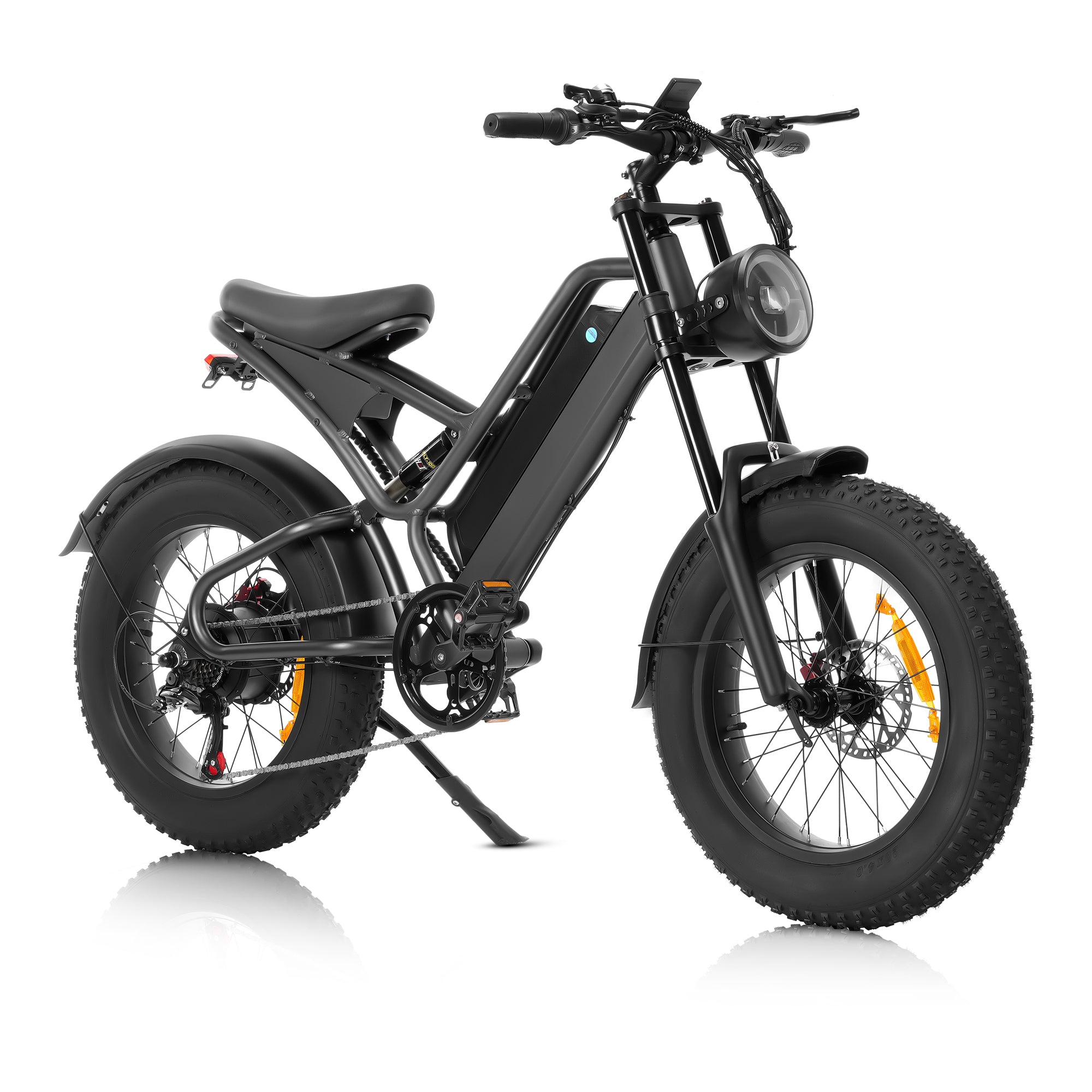


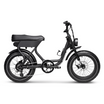
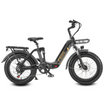
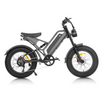
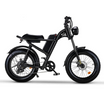
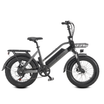







Leave a comment
All comments are moderated before being published.
Este site está protegido pela Política de privacidade da reCAPTCHA e da Google e aplicam-se os Termos de serviço das mesmas.